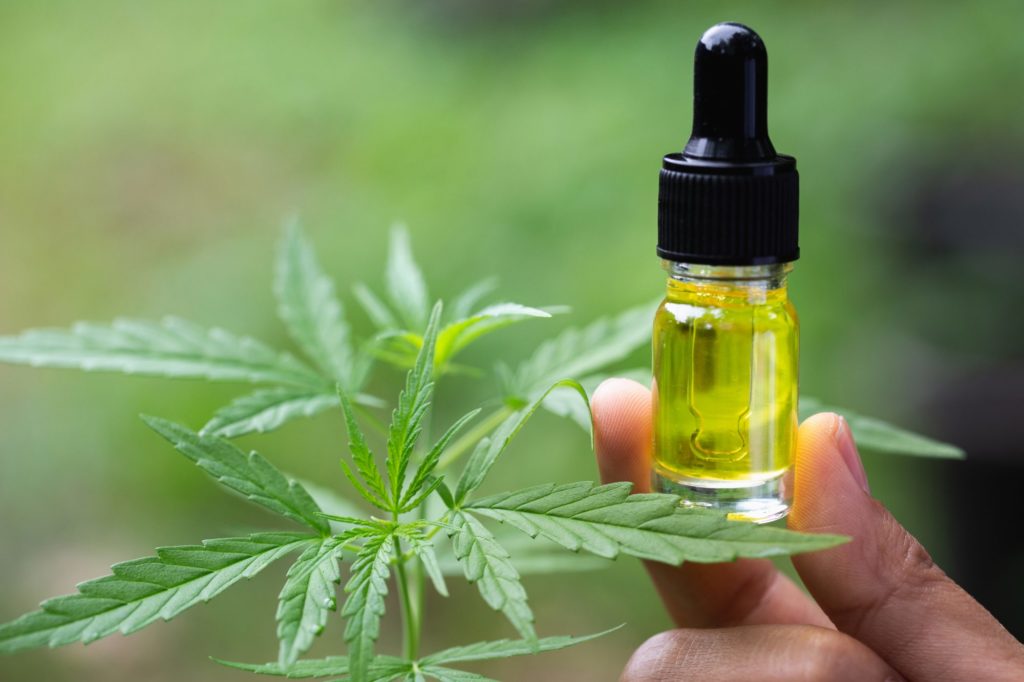Clinical Director for the Center for Recovering Families Lori Fiester answers your burning questions about CBD.
If you’ve driven around town lately, you might have seen all the CBD shops that have burst on the scene, or may have seen ads on your favorite social media site selling CBD oils and other such related items.
This surge recently came about due to hemp being legalized in 2018. There seems to be a lot of confusion about that too, especially when you realize that hemp and marijuana come from the cannabis plant. The difference between hemp and marijuana is that hemp can only contain 3% of Tetrahydrocannabinol (THC). Past that percentage, it’s considered marijuana, which is illegal in Texas. While I see the effects of recreational marijuana abuse in my work, I had limited understanding about the what the differences between the substance were, the legalities, and was Cannabidiol (CBD) just another silver bullet. So I thought I’d dip my big toe in the river.
What is CBD? Understanding Cannabidiol and Its Benefits
Cannabidiol, commonly known as CBD, has gained significant attention in recent years. Derived from the cannabis plant, CBD is one of many cannabinoids known for its potential therapeutic effects without the psychoactive “high” often associated with cannabis. This unique profile has made CBD an appealing option for those seeking natural relief for various conditions.
What is CBD?
CBD is a natural compound found in cannabis plants. Unlike THC (tetrahydrocannabinol), which is another well-known cannabinoid, CBD does not produce mind-altering effects. Instead, it interacts with the body’s endocannabinoid system, a complex network that plays a role in regulating functions such as sleep, mood, and pain.
The Science of CBD
First of all, THC and CBD are chemically the same! Twenty-one carbon atoms, 30 hydrogen atoms and two oxygen atoms. The difference is in a single atom structure. And that single-atom difference is about feeling the psychoactive effects of the substance or not.
There are about 85 known cannabinoids found in the Cannabis plant, which include THC and CBD. A cannabinoid is a compound that interacts within the network of receptors in the Endocannabinoid System (ECS), which assist to maintain vital functions within the body. There are two receptors in the body called CB1 and CB2. CB1 is found in parts of the brain that is responsible for mental and physiological processes such as memory, cognition, emotion and motor skills. CB2 is found throughout the central nervous system and the immune system.
While both CBD and THC bind to the CB2, they interact with the CB1 receptors differently. THC binds to the CB1 receptors that signals the brain to feel pleasure or ‘high’ feeling. CBD doesn’t bind directly to the CB1 and even its presence will negate the effects of the THC on the brain, meaning you won’t feel high.

Use and Effects
CBD has been linked to assisting with pain, epilepsy, multiple sclerosis (MS), Parkinson’s, and inflammation, just to name a few. CBD is not regulated by the FDA and there have been no long term studies. There are no known side effects except in drug to drug interaction, i.e. medication.
THC is psychoactive which gives the ‘high,’ and its effects can include relaxation, altered senses, fatigue, hunger and reduced aggression. Long term effects include addiction, impaired thinking and reasoning, a reduced ability to plan and organize, altered decision making, reduced control over impulses and correlates with significant abnormalities in the heart and brain.
Medical THC has been seen to help with the side effects of chemotherapy, MS, HIV/AIDS, spinal injury, nausea/vomiting, chronic pain, inflammation and digestive issues.
Potential Benefits of CBD
Many individuals turn to CBD for various health and wellness reasons, and early research indicates CBD may offer several potential benefits:
- Pain Relief: Studies suggest CBD may help with chronic pain by reducing inflammation.
- Anxiety and Stress Relief: Some evidence indicates that CBD may positively affect mental health, offering calming effects that might aid with anxiety and stress.
- Sleep Support: CBD is also popular among those struggling with sleep issues, as it may promote relaxation without the hangover effects of traditional sleep aids.
Is CBD Legal?
CBD’s legality can be complex, depending on where you live and the product’s source. Generally, CBD derived from hemp (containing less than 0.3% THC) is federally legal in the United States, though local laws may vary. However, cannabis-derived CBD is only legal in states where cannabis has been fully legalized.
Marijuana is illegal in Texas although many states have legalized it for both recreation and medically. Medical cannabis is legal in Texas in very limited situations. The Texas Compassionate Use Act came into law in 2015 allowing those affected with epilepsy, MS, Parkinson’s and Lou Gehrig’s disease have access to cannabis oil with less than 5% THC.
The Bottom Line is…
While CBD and THC come from the same plant, one is legal in Texas and one is not. It appears that CBD can have positive effects on a person’s health, it is not a psychoactive drug, there are no known side effects, and due to the changes in the law, it is readily available. However, with that being said, there are no guidelines for manufacturing the substance, and there are no long term studies on the effects from taking the substance. I stress the issue of manufacturing due to the serious illness and even deaths we have seen from vaping when this delivery system was off-brand/market and often involving marijuana.
Marijuana is still illegal in Texas, it is a psychoactive and addictive drug and there are many side effects from its use.
To make an appointment for a clinical assessment, or if you have any questions about how we can help you or a loved one struggling with substance abuse, call 713-914-0556 or contact us online.
If your campus, workplace or community would benefit from a presentation, contact us at 281-200-9273 or comm_education@councilonrecovery.org.
